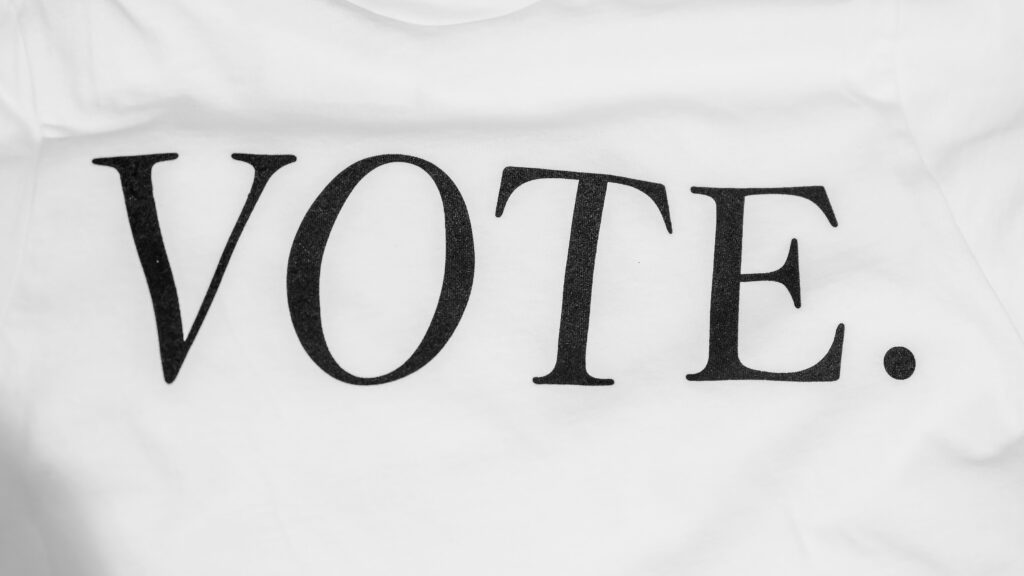This is the biggest election year in human history.
More than 50 elections around the world have given citizens the opportunity to vote – affecting nearly half of the global population. From Spain to South Africa, Mexico and Mozambique, the UK, US and more, this year’s elections are having significant effects on issues such as human rights, the economy and international relations during a contentious time.
This summer, voters across the European Union elected a new tranche of MEPs to its transnational Parliament, and the United Kingdom welcomed a new Prime Minister, Keir Starmer, after a snap election which took many by surprise. In just a couple of weeks, the United States will elect its 47th President following another close race between the Democratic and Republican parties, and more recently the Irish PM has decided to go to the polls before the year is out.
Frenetic and potentially divisive election campaigns mean that brands and communications professionals must be particularly mindful of their positioning and messaging. Specifically, political neutrality is key to ensuring that brands continue to resonate positively among their diverse stakeholders.
We turned to our Global Network for their thoughts and advice as we look back at the largest election year in history.
Spain embraces a super election year
Spain has witnessed several years of intense political activity, and 2024 is no different. This year in particular, the country embraced a super election year driven by European elections, as well as elections in Autonomous Communities – Catalonia, Basque Country and Galicia.
Miguel Ángel Sánchez, Head of Consumer at Canela explores what brands and organisations must be aware of during a time of unparalleled polarisation, leading to a rise in the extreme right in the public arena:
Many brands and organisations may be tempted to become part of the conversation as a tool for creating brand awareness. For example, Greenpeace created controversy by hanging a giant advertising billboard in the centre of Madrid with the modified faces of the four main presidential candidates and the accusatory text ‘You don’t give a damn about climate change’. The NGO was strongly criticised by some sectors of public opinion for equating the environmental speeches of political parties that differ greatly in their commitment to the issue.
From a corporate or product and service communication point of view, we cannot recommend our clients copy the ‘Greenpeace’ style, as brand awareness is not always positive. We try to avoid campaigns that are highly charged ideologically, and, in fact, we prepare the spokespersons of these companies and organisations so that they do not take a direct pro- or anti-party position.
However, while we try to avoid such direct endorsement of political figures and organisations, brands can and should be actors to be considered in the public arena if they meet two requirements: having expertise on a specific issue and having an educational narrative on a particular real problem. Brands should lobby and actively communicate in order to push the political class to make decisions that improve the life of society as a whole and to defend democratic values of great consensus.
South Africa: communication is the lifeblood of political success
According to Ronelle Bester, Founder & Account Director, Red Ribbon Communications, this year’s election in South Africa has underscored that in an increasingly digital and connected world, communication is not simply a tool for brand professionals, but a powerful influence that political partners can use to their advantage.
The recent elections in South Africa highlighted the immense power of communications in shaping political outcomes. In a country marked by diverse political landscapes, strategic messaging became key in rallying voters, influencing public perception, and addressing pressing national issues.
The African National Congress (ANC) capitalised on its legacy, using communication to reinforce its historical role in the fight against apartheid, even as it faced criticism for current governance challenges. Meanwhile, the Economic Freedom Fighters (EFF) effectively used social media to engage younger voters, with bold, disruptive messaging that positioned them as a radical alternative to the status quo. On the other hand, the Democratic Alliance (DA) leveraged clear communication around policy stability and governance, focusing on municipal successes to appeal to middle-class voters.
However, instances of poor messaging, such as unclear stances on critical issues, alienated potential supporters for some parties, emphasising how vital consistent, transparent communication is in shaping voter trust.
Divisive politics continue to rock the United States
As one of the next upcoming global elections on the list, all eyes seem to be on the United States. In what has turned into another divisive election, Rich Gallagher, Deputy MD, Brands2Life US calls upon brand marketers to do their best to “stay out of it.”
Even responsible marketers can find themselves thrown into a highly charged political conversation through unintended consequences. For instance, it was commonplace a few years ago for nearly all consumer brands to advertise on X (formerly Twitter). But Elon Musk’s politics, which manifest in questionable moderation policies, have come to precede the brand, and it’s had a chilling effect on their ad sales.
The most practical advice would be to tread very carefully in the run-up to Election Day in the US. Now is the time to make sure employee social media policies, comment moderation practices, and spokesperson messages are thoroughly reviewed and followed.
Keep calm and carry on
While 2024 has certainly been a historic year in terms of the number of elections the world has witnessed, the strategies communications professionals adhere to remain the same.
We must continue to navigate these complex landscapes by fostering positive relationships between the brands we represent and their audiences – ensuring brand integrity – while also remaining agile during moments of heightened media activity. This is how our clients and their brands will find themselves in a strong position to weather this politically charged environment.




